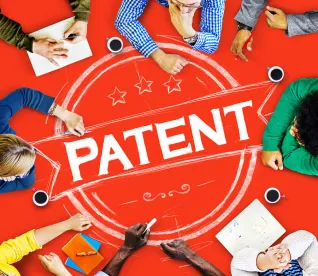Patent owners have the right to exclude all others from making, using, or selling their inventions without first obtaining permission. But what happens to somebody who lawfully purchases a product or article that embodies a patented invention? Can the patent owner turn around and restrict the purchaser’s right to use or sell the item after it was purchased? In the United States, it turns out that this is allowed. Sometimes a sale is less than a sale.
The situation most commonly arises in the context of a secondary repair market for disposable products. For example, a patent owner sells a patented product to a customer who uses the item until its useful life has been exhausted. But rather than dispose of the item at this point, the customer instead sells it to a third party who runs a business refurbishing used products for resale at discounted prices. The existence of the secondary market cuts into the patent owner’s sales of new items.
This is exactly the factual scenario at issue in a recent U.S. court case – with one significant difference. The patent owner had imposed specific conditions on what its customers could and couldn’t do with the item after they were finished using it. In particular, the patent owner expressly prohibited re-sale to third-party refurbishers.
The case is Lexmark International, Inc. v. Impression Products, Inc., No. 14-1617 (Fed. Cir. 2015) and the facts are as follows: Lexmark manufactures and sells disposable printer cartridges that are covered by a number of patents. Impression Products was buying depleted cartridges from Lexmark’s original customers and, after some modification, refilling them for sale to their own customers at discounted prices. Lexmark objected because Impression apparently knew the original sales were subject to a single-use/no-resale restriction and sued to stop the practice.
In deciding the case in favor of Lexmark, the Court of Appeals for the U.S. Federal Circuit affirmed the conditional sale exception it created almost 25 years earlier. Under the exception, patent owners like Lexmark are entitled to sell their patented articles subject to express use and/or re-sale restrictions. Provided they are clearly communicated when the items are first sold, these restrictions will be valid and enforceable at a minimum against the original purchaser. Subsequently purchasers like Impression, who possess actual knowledge of the restrictions, will likely also be bound to the same terms.
This outcome is a departure from the general rule that anybody who purchases a product or article covered by a patent will be free to re-sell or make any unrestricted use of the purchased item without fear of infringing the patent owner’s rights, which are said to be exhausted through the original authorized sale.
Not every use/re-sale restriction is enforceable though, such as where the imposed restriction violates U.S. antitrust law (tied sales, price-fixing, etc.), amounts to misuse of patent rights, or is otherwise illegal. But provided no underlying law or policy has been violated, use/re-sale restrictions are generally permissible under the conditional sale exception.
Other countries, including Canada and within the European Community, have taken a stricter approach to exhaustion of patent rights. So far only the U.S. recognizes an exception for conditional sales.
The last word rests with the U.S. Supreme Court, which may decide to weigh in again on the issue of conditional sales in the dispute between Lexmark and Impression. But until they say otherwise, patent owners have retained a valuable tool for shaping and controlling the available markets for their inventions.




 />i
/>i

